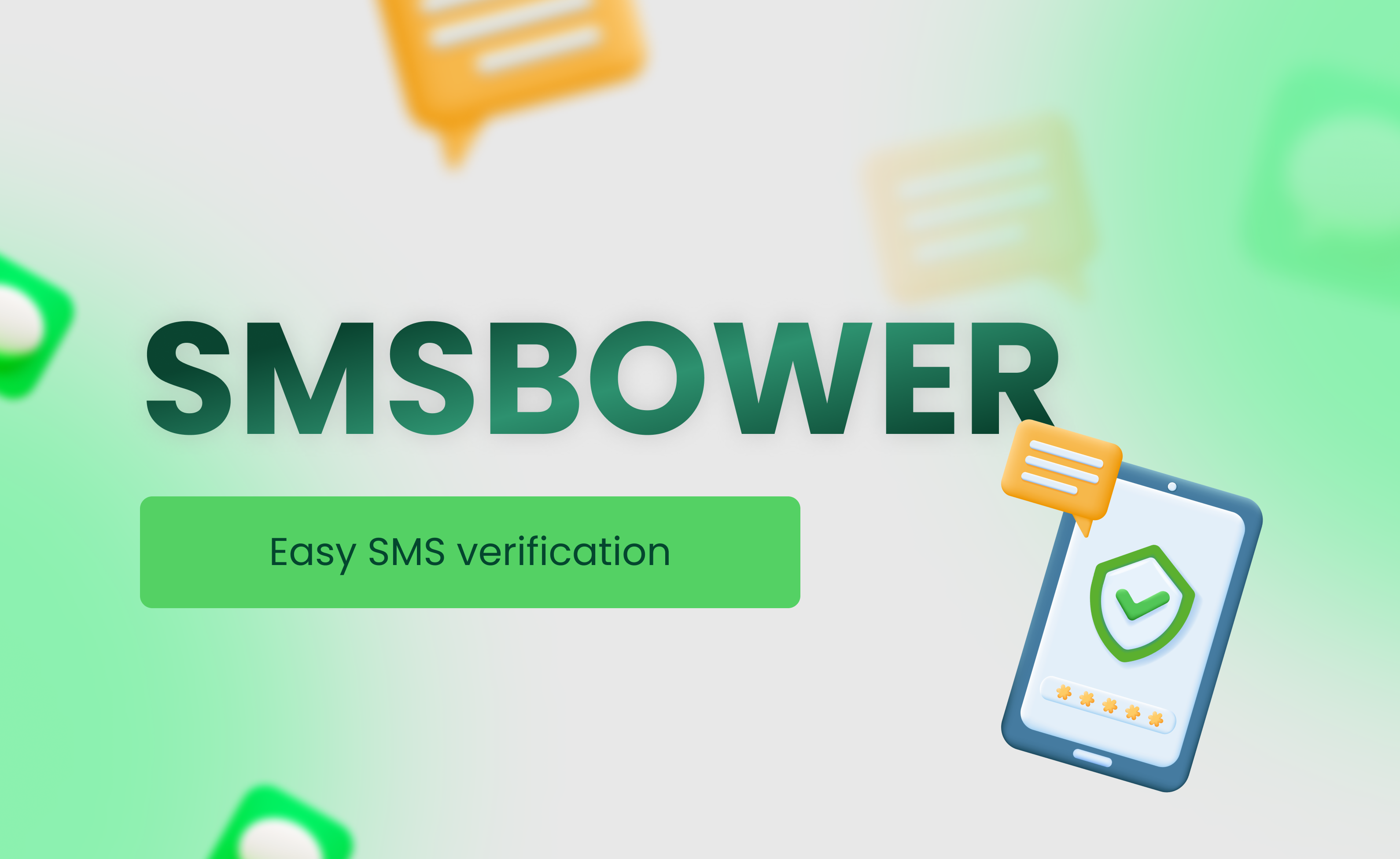What is SMS verification code?

As more services move online, confirming that users are who they say they are helps reduce fraud and protect data. One of the most common methods of authentication is SMS verification.
In this article, we’ll explain what an SMS verification code is, how it works, its benefits and drawbacks, and how you can use a virtual number to receive verification codes securely.
What Is SMS Verification?
SMS verification is a way to confirm a user’s identity by sending a one-time password (OTP) to their phone. When signing up or logging in to a website or app, users receive a unique code via text message. They then enter this code to verify their identity and proceed with the transaction or access.
This process helps protect personal information and prevent unauthorized access.
How SMS Verification Works
The SMS verification process is simple:
-
A user enters their phone number on a website or app.
-
The service sends a one-time verification code via SMS.
-
The user receives the code on their mobile device.
-
The user enters the code into the app or website.
-
If the code matches, access is granted or the transaction is confirmed.
Advantages of SMS Verification
Security
Adds an extra layer of protection by confirming that only the person with access to the phone can complete the process.
Simplicity
Fast and easy to use — the whole process takes just a few seconds.
Cost-Effective
Compared to hardware tokens or other methods, SMS verification is an affordable solution for both businesses and individuals.
Limitations of SMS Verification
Susceptibility to Attacks
SMS messages can be intercepted, making this method less secure than some alternatives.
Device Dependency
If a user loses their phone, they may not be able to complete the verification process.
Multiple Devices
If several devices are linked to the same number, the code might not appear on the one being used.
How to Bypass SMS Verification Code?
Although SMS verification is widely used, some users prefer not to share their personal number. A practical alternative is using a temporary number or virtual phone number from SMSBOWER.
These are short-term, disposable numbers that can receive SMS messages, including OTPs. They help users protect their privacy and avoid spam, and of course register the new account on desired service/social network.
Read more about using a virtual phone number and explore how SMS verification works in our in-depth guides.
Benefits of Using a Temporary Phone Number
Protects Your Privacy
Use a virtual number instead of your real one when signing up for services.
Avoid Spam
By not sharing your personal number, you reduce the chance of receiving unwanted messages.
Use Multiple Numbers
Easily create several temporary numbers for different services, accounts, or platforms.
How to Get a Temporary or Fake Phone Number
Getting a virtual phone number on SMSBOWER is simple:
-
Sign up for a free account on smsbower.org.
-
Add funds to your account balance.
-
Select the country and number you need.
-
Purchase the number.
-
Use the number in the app or website, and retrieve your SMS code through the platform.
Once the OTP is received, you can complete the registration or login process without exposing your personal number.
Final Thoughts
SMS verification is a reliable and convenient way to secure online accounts. It’s affordable and easy to use, but like any system, it has limitations. If you're concerned about privacy or just want more control, using a temporary phone number from SMSBOWER is a smart solution.
If you’re having trouble receiving a verification code, try refreshing the page, waiting a few minutes, or contacting customer support.
SMS verification remains a trusted method to confirm identity and block fraudulent access — and virtual numbers give you the privacy and flexibility you need in today’s connected world.
Popular Articles




 EN
EN

